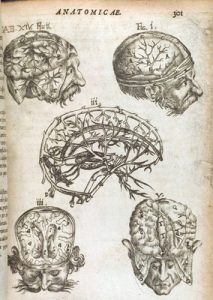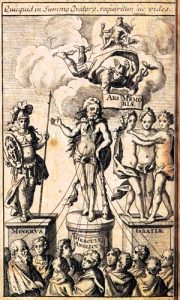What does it feel like to have vivid memories? We know surprisingly little about both the cognitive processes that enable humans to relive past events, and how the experience of remembering varies between individuals and cultures.
When Memories Come Alive will run until 2027, with the generous support of UKRI. The project seeks to generate new insights by bringing scholars from varied disciplines into dialogue. By exploring historical and literary perspectives on memory, we aim to highlight aspects of the subjective experience of remembering that have been neglected within pscyhological and neuroscientific studies. This will form the basis for new experiments examining memory and cognition. Equally, we will investigate how insights from cognitive science can transform understandings of memory within the humanities.

?
Engraving from Gregor Horst, De natura humana, book 2 (Frankfurt, 1612), 301. Wellcome Collection, CC BY 4.0.
Watch Jon Simons discussing some of the neuroscientific research that the project will build upon:

?
Frontispiece from Marius D’Assigny, The Art of Memory (London, 1699). Wellcome Collection, Public Domain.
We are grateful to the numerous scholars who are supporting the core project team, especially through involvement in our regular Memory Club meetings. Summaries of Memory Club discussions can be found in our News section. Other project outputs will include scholarly articles, public events, workshops for clinicians and policy-makers, and an online exhibition. Please check back regularly for updates on new events and releases.